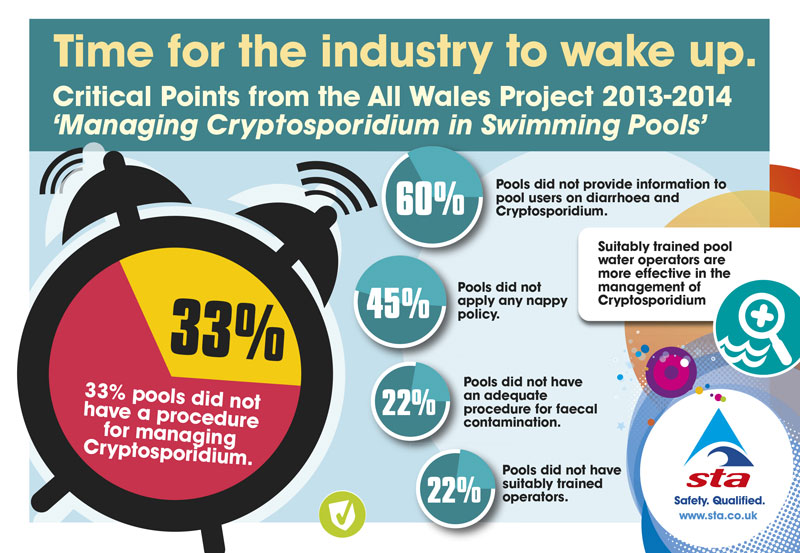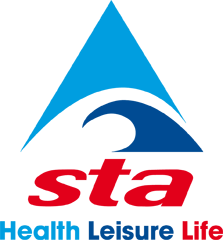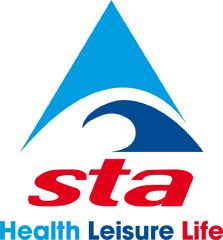Industry Wake Up Call for Managing Cryptosporidium
In 2013, Public Protection in the City of Cardiff Council conducted a first of its kind study to help raise awareness of Cryptosporidium risks in all 22 Welsh Local Authorities. The aim was to gather information and assess the management of Cryptosporidium in swimming pools, for the purpose of raising standards in swimming pools and reducing the risk of Cryptosporidium outbreaks associated with swimming pools.
STA has used the data gathered to create its first infographic, with the aim of highlighting the key critical areas, and creating a new approach to auditing a pool’s operation and the possession of pool plant qualifications across the UK.

Robbie Phillips, STA’s Senior Pool Plant Tutor, who advised on the project and held Pool Plant workshops for the Welsh Environmental Health Practitioners, said: “This report should be a major wake up call for the industry. The results are indicative of the whole UK, not just Wales, and serve to illustrate that by investing in training we can effectively manage Cryptosporidium in Swimming Pools.”
“We applaud the project team which comprised of officers from Cardiff, Newport and Pembrokeshire for proactively raising awareness of this important issue via this detailed 2-year study and report. It has raised much-needed awareness of the importance of training, and already, STA has seen a significant rise in the number of Pool Plant Operator and Pool Water Testing qualifications being awarded as a result.”
- The result of the industry’s first study into the management of cryptosporidium in swimming pools raises questions on fundamental pool plant procedures, particularly in the holiday park sector, and gives evidence to show the importance of training.
- In 2013, Public Protection in the City of Cardiff Council conducted the study with the objective of raising standards in swimming pools and reducing the risk of Cryptosporidium outbreaks associated with swimming pools.
- The study was led by a group of Environmental Health Practitioners (EHPs) from Cardiff, Newport and Pembrokeshire and involved participation from all 22 local authorities in Wales between May 2013 and February 2014.
- STA, as the lead awarding body for pool plant management, assisted in the pro-forma questionnaire, training and assisting the EHPs.
- STA state the findings from the research are indicative of the whole UK, not just Wales, and have raised much-needed awareness; proving the importance of training in effectively managing Cryptosporidium in Swimming Pools.
- STA confirm they have seen a significant rise in the number of Pool Plant Operator and Pool Water Testing qualifications being awarded as a result of the research.
Background
Since 2001, swimming pools have been the most common setting for outbreaks of waterborne infectious intestinal disease in England and Wales, with Cryptosporidium being the leading cause. In response the Public Protection team at the City of Cardiff Council conducted a first of its kind study in 2013 to help raise awareness with pool operators; assess management of Cryptosporidium in swimming pools across Wales; and to gather information about swimming facilities which can be utilised in the event of an outbreak.
Phase 1 involved the development and application of health promotional information. Phase 2 involved undertaking the pool visits and analysing the results.
All 22 local authorities in Wales participated in the study; this included commercial pools under local authority health and safety enforcement, and pools run by local authorities and health boards. Announced visits were made by EHPs to a standard protocol. The protocol considered all areas of pool management and operations that are critical to the effective prevention and control of Cryptosporidium.
To ensure consistency in approach, all officers undertaking the visits had previously attended a training workshop run by STA’s senior pool plant expert, Robbie Phillips, who comments here on the key findings from the report.
The Results
At the time of the study a total of 522 pools were reported to be in operation in Wales, and of these 426 were visited (82%).
Performance & Confidence in Management Rating of Pool Operators
- 19 (4.5%) pools were found to be in unacceptable or unsatisfactory
- 215 (46.5%) were satisfactory (had minor shortcomings or were ‘patchy’)
- 208 (49%) were found to be of a high or good standard
Water Flow Process and Schematics
Robbie explains that a schematic diagram forms a fundamental part of effective pool water management; they are needed to support and demonstrate a clear understanding of the specific pool water circulation, filtration and treatment system for the pool in question. A clear concise schematic is a fundamental document as a part of an effective outbreak investigation.
Alarmingly, the study revealed that 257 (60%) of the pools did not have adequate schematic diagrams (see sector breakdown on chart here). Holiday accommodation, including 87 holiday parks were the most common type of business not to have this information.
The Turnover Period
This is the time taken for the entire volume of pool water to pass through the water treatment plant and back to the pool. Information Robbie confirmed is critical when establishing remedial action to be taken in the event of a liquid faecal accident.
- 156 (37%) pool water operators did not know the turnover period of their pool. The most common type of premises were: holiday accommodation incl. parks and cottages 69 (44%), hotels 40 (26%) and schools 19 (12%).
- 40 (9.5%) pools showed good practice.
Fundamentals of Pool Plant Management
- Filtration relies on good circulation and turnover. However in this study 101 (24%) pools did not know the flow rate of their filter. Robbie explained that it’s crucial for pool operators to know their filtration type because this dictates the type of treatment needed to eradicate cryptosporidium oocysts.
- Recording and Reaction Logs – 49 (12%) pools did not keep a water treatment log and of these 5 did not understand the required corrective actions. Of the 377 who kept a water treatment log 12 did not understand the required corrective actions.
- Bacterial Testing – 142 (33%) pools did not have a regular microbiological sampling programme. Monthly sampling for bacteriological quality is recommended by PWTAG and HSE to monitor for the presence of microorganisms. Bacteriological results help to confirm effective pool water management, said Robbie.
- Chemical Terms Confusions – General perceptions of what chemicals constituted as disinfectants were worrying. In these cases Robbie questions the health and safety regimes, which he said could be disastrous.
Critical Points
- 33% pools did not have a procedure for managing Cryptosporidium.
- 60% pools did not provide information to pool users on diarrhoea and Cryptosporidium.
- 22% pools did not have an adequate procedure for faecal contamination.
- 19% pools did not have a procedure for different stools.
- 45% pools did not apply any nappy policy.
- 2.6% pools did not have clean and adequate changing facilities.
- 22% pools did not have suitably trained operators.
Key Learnings for the Industry
The report provides invaluable information for the industry. Whilst a high or good performance rating was given to 208 (48%) of pools and 240 (57%) were classed as showing ‘best practice’ or ‘strong evidence of up to task’, the study revealed clear shortcomings in the management of Cryptosporidium specifically. The most important of these includes:
- The lack of a schematic diagram
- Poor filter management including a lack of knowledge on turnover periods, medium and high rate filters, the use of coagulant and the timing of backwashing
- Limited application of policies for keeping Cryptosporidium out of pool water including inadequate or lack of procedures for faecal contamination, nappy policies, information for pool water users and specific Cryptosporidium procedures.
On a positive note, the study clearly confirmed the benefits of employing and investing in training for pool plant operators. There was clear evidence that pools with suitably trained pool water operators were more effective in the management of Cryptosporidium.
Swimming pools with suitably trained pool water operators were:
- 4 times more likely to have an adequate schematic diagram
- 3 times more likely to know the turnover period of the pool
- 3 times more likely to have a procedure for managing Cryptosporidium.
This in turn provides safer and more attractive pools.
Resulted in an increase in training
As a result of this research, STA also reports that they have seen a massive increase in the number of Pool Plant Operators and Pool Plant Water Testing qualifications being awarded. By comparing the period prior to the research commencing and the period after the research, the increase in the number of Pool Plant Operator qualifications STA awarded was 120% and a staggering 150% increase for Pool Plant Water Testing.
Robbie concluded by saying:
“We applaud the Public Protection team at the City of Cardiff Council for proactively raising awareness of this important issue via this detailed 2-year study and report. As an industry we can no longer wipe the problem of Cryptosporidium under the carpet; we now have hard concrete evidence of where the key critical issues are and together we must take decisive action.
This report should be a major wake up call for the industry, and serves to illustrate that by investing in training we can effectively manage Cryptosporidium in Swimming Pools. It’s very pleasing to see that the research has already having a positive impact on pool plant training, with rising numbers of pool plant qualifications being awarded.”
Note: This 2-year project evolved from the investigation of an outbreak of swimming pool associated Cryptosporidium and elevated numbers of sporadic Cryptosporidium in South East Wales in 2009, and a follow up national study into sporadic swimming pool associated Cryptosporidium in 2010.
The Members of the Project Working Group are:
- Dr Sarah Jones City of Cardiff Council Kelly Lee, Newport City Council
- Samantha Hancock, Pembrokeshire Count Council
- Categories
- Pool Plant


